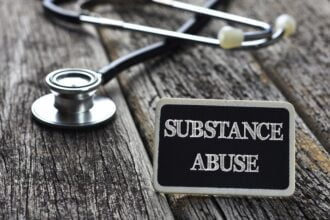
Feeling down from time to time is a normal part of life. But when emptiness and despair take hold and won’t go away, it may be depression. When you’re depressed, things may feel hopeless, but with help and support you can get better. But first, you need to understand depression. Learning about depression is the first step to overcoming the problem.

Feeling down from time to time is a normal part of life. But when emptiness and despair take hold and won’t go away, it may be depression. When you’re depressed, things may feel hopeless, but with help and support you can get better. But first, you need to understand depression. Learning about depression is the first step to overcoming the problem.
What is depression?
Depression interferes with your ability to work, study, eat, sleep, and have fun. It’s more than just feeling sad. Sadness is a normal reaction to life’s struggles, setbacks, and disappointments. Depression may feel lifeless, empty, apathetic, angry, aggressive, and restless. Experts believe that depression is caused by a combination of biological, psychological, and social factors. In other words, your lifestyle choices, relationships, and coping skills matter just as much than genetics. Some people experience just a single depressive episode in their lifetime, but more commonly, major depression is a recurring disorder.
Signs and symptoms of depression
Depression varies from person to person, but there are some common signs and symptoms, and these include:
- Feelings of helplessness and hopelessness, nothing you can do can improve the your situation.
- Loss of interest in daily activities.
- Appetite or weight changes by more than 5% of body weight in a month.
- Sleep patters change.
- Anger or irritability, and feeling agitated, restless, or even violent. Your tolerance level is low, your temper short, and everything and everyone gets on your nerves.
- Loss of energy and feeling fatigued, sluggish, and physically drained.
- Self-loathing and strong feelings of worthlessness or guilt.
- Reckless behavior and find yourself engaged in substance abuse, compulsive gambling, reckless driving, or dangerous sports.
- Trouble focusing, making decisions, or remembering things.
- An increase in physical pain such as headaches, back pain, aching muscles, and stomach pain.
Depression and suicide
Depression is a major risk factor for suicide. The deep despair and hopelessness that goes along with depression can make suicide feel like the only way to escape the pain. Thoughts of death or suicide are a serious symptom of depression, so take any suicidal talk or behavior seriously. Express your concern and seek professional help immediately. Talking openly about suicidal thoughts and feelings can save a life!
Types of depression
There are various types of depression that have unique symptoms, causes, and effects. Understanding the underlying cause of your depression may help you overcome the problem.
- Major depression
Major depression is characterized by the inability to enjoy life and experience pleasure and typically lasts for about six months.
- Dysthymia
Dysthmia is a chronic low-grade depression that lasts for at least 2 years. More days than not, you feel mildly or moderately depressed, although you may have brief periods of normal mood. If you suffer from dysthymia, you may feel like you’ve always been depressed, also known as double depression.
- Seasonal affective disorder
Some people get depressed in the fall or winter, when overcast days are frequent and sunlight is limited. Seasonal affective disorder is treatable by light therapy, a treatment that involves exposure to bright artificial light.
- Bipolar
Bipolar disorder finds someone typically switching from one mood extreme to another, and lasts for at least several weeks. Antidepressants can make bipolar depression worse.
Ask for help and support
The key to depression recovery is to start small and ask for help. If even the thought of tackling your depression seems overwhelming, don’t panic there is assistance. Having a strong support system in place will speed your recovery. Isolation fuels depression, so reach out to others. Let your family and friends know what you’re going through and how they can support you. Otherwise seek assistance from online health communities.
What are online health communities?
Online health communities or electronic support groups have emerged when enough people have registered to sustain public discussions, on a health related topic. Yahoo! Groups have more than 22,000 health communities in the Health & Wellness section. Some health communities are facilitated by trained professionals, either oncology nurses, counselors, or survivors.
The advantages of online health communities over face-to-face groups include absence of geographic and transport barriers; anonymity from stigmatizing, embarrassing, and sensitive issues; increasing self-disclosure; and encouraging honesty. Even people with rare diseases can find peers online. The anonymity of online communities may facilitate the participation of certain people, who may be culturally and socially conditioned not to ask for help and support.
However, the disadvantages of online health communities include a considerable amount of “noise,” negative emotions persuade, and lack of physical contact. As with content found online, there have been concerns over inaccurate information exchange online health communities. As honesty is taken at face value, where accomplishments, photos and updates cannot be fully verified, there are no system fact checkers, within the online world.
What types of messages are exchanged in these online health communities?
Information exchanged in health communities, show 80% of information giving or seeking personal opinions, encouragement, support, and personal experiences, and 20% prayers. Women are engaging in supportive messages more frequently than men, who used the electronic community primarily for information exchange.
What is the effect of online health communities on well-being and health outcomes?
The various types of social networking such as e-mail, blogs and chat-rooms can increase social isolation and decreased mental health and psychological wellbeing. Heavy Internet use can be associated with increases in loneliness and depression and tended to increase stress. However, most people find that within online communities, comfort and support from others found within the communities.
Make healthy lifestyle changes
Healthy lifestyle changes are not always easy to make, but they can have a big impact on depression. Lifestyle changes that can be very effective may include:
- Supportive relationships – family, friends, group circles
- Getting regular exercise and sleep
- Eating healthfully to naturally boost mood
- Practicing relaxation techniques
Seek professional help
There are many other effective treatments for depression, including therapy, medication, and alternative treatments. Speak with your doctor about any of these treatments, but also visit online health communities to see how others are treating their depression.







